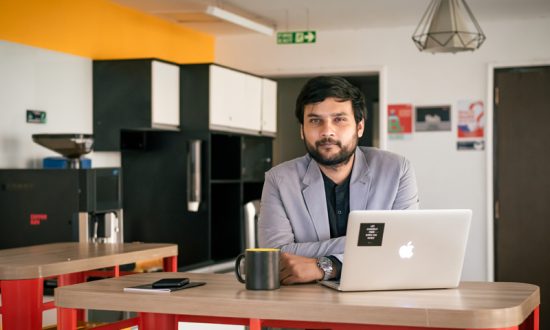Sparsh Khandelwal, Founder & CEO, Stylework, aims to make co-working accessible and convenient for all working individuals in India. A 25-year-old bright young entrepreneur, he always wanted to live the dream of being an entrepreneur and inspire more individuals who share a similar dream along the way. He initiated modular architecture research in his 3rd year of B.Tech, which came in as an opportunity today to use his skillsets as a successful co-working aggregator. He then set out to become the founder and lead executive at Cubes. Khandelwal’s research design rested on a nested loop as an automated shared economy which manifests into the introduction of a tech-enabled co-working platform that aggregates manages and handles flexible workspaces for customers with relevant space, ensuring a great experience every time!
Work from home may have appeared as an appealing concept initially. However, with time, most of the challenges that employees face when working from home, such as technical cankers, large family setups, and limited space at home, may become recurring issues that negatively impact the operational efficiencies and productivity of the employee.
Being the CEO of a company, I can say that employers are now evaluating new strategies to adapt to more flexible ways of working. They are rethinking their approaches to hiring, policies on where and how work gets done, the workplace experience, and technology.
The office-based model of work is a work-centric model that began in the industrial age because you had to be at the manufacturing plant as the work actually happened there. Other businesses also applied the same model to their work because they were largely dealing with paperwork and documentation. But now, when everything has gone digital, there is a need to upgrade the office-based model.
So, without a doubt, the pandemic accelerated office trends that we expected to take place 8-10 years in the future. More and more companies are now adopting business models such as Hub & Spoke, Decentralised and Centralised because permanent virtual work can cripple innovation and creativity since we all miss out on the planned and spontaneous in-person interactions that spark ideas.
In the Hub & Spoke model, companies have a primary “hub” office that serves as a place for meetings, team collaboration, and events. While “spokes” are satellite offices in small cities or neighbourhoods near where employees live. However, a spoke doesn’t necessarily mean a conventional office. It can be a dedicated desk or multiple hot desks in a coworking space or a flexible serviced office. The Hub & Spoke model has been around for years now. Yet right now, with the rise of hybrid work and the “work from anywhere” approach, it has become popular as businesses are adjusting their strategies according to the new reality.
The Hub & Spoke model responds to the needs of the employees who want more flexibility from their employers. According to the Work Reimagined Employee Survey 2021, employees clearly want flexibility. Almost 9 out of 10 respondents need flexibility in where and when they work while 54% of employees claim that they might quit if not offered flexibility. With a Hub & Spoke model of office spaces, no particular office gets overcrowded thus maintaining social distancing and having spaces closer to where employees live, makes the commute less complicated, providing them with the much-needed flexibility.
Another such model, similar to Hub & Spoke is the de-centralization of workspaces to achieve an effective business workflow. Decentralization of workspace refers to an organizational structure in which the co-working environment is stretched, giving the employees the flexibility to work remotely or from satellite offices. However, though it sounds like a cakewalk, it is not easy to decentralize workspaces without well-defined plans and work models. In order to ease this process, prominent coworking aggregation platforms have come up that aid the decentralization approach of companies. The merits of a decentralized model double with the proper integration of flex spaces.
While Hub & Spoke and De-centralised models provide flexibility on where and when to work, a Centralised model of workspace restricts you to work at a particular place, hindering flexibility. Owing to the current pandemic situation, having a centralized model of working is not advisable as it might pose problems for the employees.
Whereas Hub & Spoke and De-centralization models have proved to be a boon for employees living in Tier 2 & 3 cities as they get a chance to work with the same efficiency while staying near to their families. Letting employees work from Tier 2 & 3 cities can create a larger impact in the long run as it would give a boost to the local economy of people living there and would lead to better infrastructure and opportunities. In my opinion, supporting remote work and encouraging your employees to relocate to Tier 2 & 3 cities would be the best forms of corporate social responsibility.
Among the persisting hybrid models coming into the picture, Hub and Spoke and De-centralization stand out for their optimal framework. These models have already gained a lot of prominence among large corporates through the constructive blending of the workflow of business along with well-structured work plans. The companies following the Hub & Spoke model and Decentralisation model are responsible for providing every vital amenity, an office needs for working.






